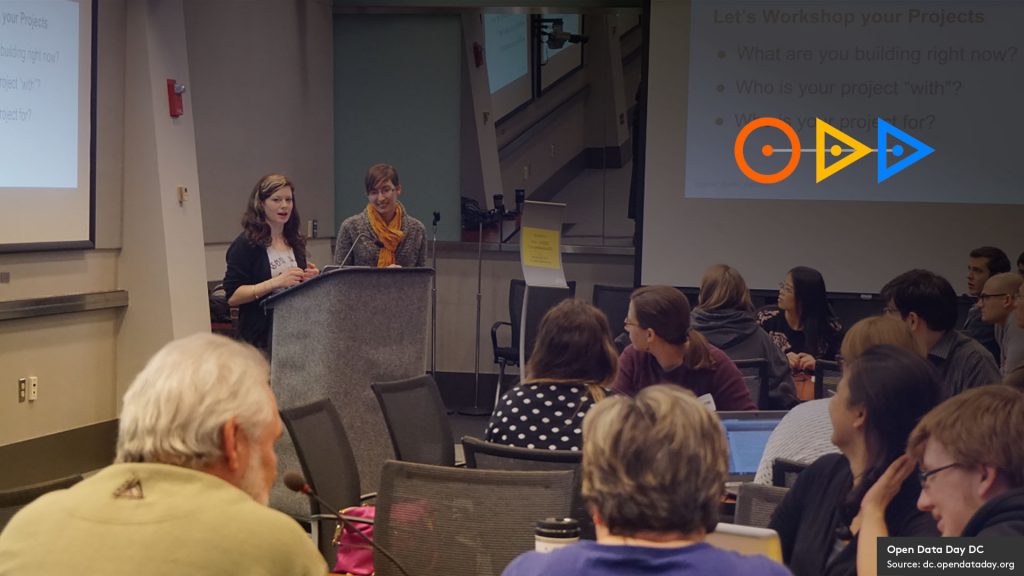Key Takeaway
More than ever, the data floodgates are opening, as more and more recognize the value of insights gleaned from external, public data – for businesses and municipalities, as well as for the public good. This year’s global events will focus on open research data, tracking public flows of money, open mapping and data for equal development.
It’s a field day for data lovers
Open Data Day will be celebrated on March 3rd, 2018. Over 300 events have been registered around the world, from hackathons, to master classes, to forums, with open data at the center of discussion. Four organizations – Hivos, Article19, SPARCand Hewlett Foundation – are offering mini-grants to event organizers who meet criteria, to address this year’s 4 core themes:
- Follow the Money and Open Contracting
- Open Science and Open Research Data
- Open Mapping
- Open Data for Equal Development

Why open data?
Evidenced by Smart City initiatives across the world, from Europe to Africa, access to public data has the potential to support data-driven AI solutions that can address many major issues plaguing our increasingly urbanized world. Finland, for example, has been a leader in encouraging access to open data for ages, since the implementation of its Freedom of Information Law. According to their politicians, this data enables the public to hold their government accountable. They call it ‘democracy at work’.
The city of Helsinki encourages creators to work together to put their city’s data to good use, via co-creation. They’ve developed an entire region – the Smart Kalasatama District – which encourages innovation and is built much like a testing ground for piloting new Smart City initiatives.
In Denmark, citizens can track government activity via folketsting.dk. In the UK, the “where does my money go” program shows how the government spends tax money. Hundreds of government-driven open data portals have been launched globally, and international organizations like the World Bank and the United Nations, as well as major banks, have jumped on board.

Quantifiable value creation
Research from Lateral Economics found that open data has the capacity to improve GDP by 0.5% compared to paid data. In 2013, McKinsey estimated a global market powered by open data from all sectors would create an additional $3T to $5T per year.
In many areas, the impact of open data initiatives is already being felt. The city of San Francisco, for instance, has been able to save upwards of $1M per year with its open data portal.
But perhaps one of the greatest cases for open data is the 2010 story from Canada Revenue Authority, which thanks to public data was able to uncover illegally operating charities who had sheltered around $500M in 2005 due to tax fraud. According to David Eaves, a public policy advocate and Lecturer of Public Policy at the Harvard Kennedy School of Government, fraudulent donations had reached close to $1B in 2007, “with some some 3.2 billion dollars illegally sheltered, a sum that accounts for 12% of all charitable giving in Canada.”
This is the power of open data: The power to find problems in complicated environments, and possibly even to prevent them from emerging.
Open data enables anyone – brands, citizens, government or otherwise – to access the valuable insights found in external data, to help them make better decisions for themselves, their countries and their businesses. The idea is that this collective effort will lead to better products, more accountability and a better quality of life for all. This is precisely the premise of Outside Insight.

Global Open Data Day events
Saturday’s events will encourage entrepreneurs and data scientists to look at ways we can solve the world’s problems through access to open data – from youth inequality in the Netherlands to USA civic issues, to hackathons for development led by organizations like MEST Africa in Lagos, Nigeria.
Previous events have spanned the globe and looked at a number of pressing issues, from transparency and accountability in DRC’s extractive sector, to clean air in Medellin, Colombia, to human rights in Istanbul. Read more about last year’s events here.
Take a look at resources supporting this year’s events, including Data World, a platform which helps users host and share data, collaborate with their team, and capture context and conclusions as they work, and Datazar, a “cloud-based collaboration platform where you can store, analyze and share your research using tools you already love.”
I actually think data and AI can be one of the most formidable forces for good; I think it can eradicate a lot of diseases, predict illnesses and discover diagnoses that can save lives.

